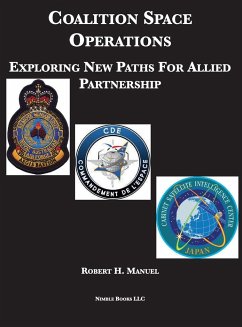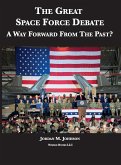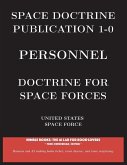An important topic because throughout most of American history coalition warfare has been an essential source of asymmetric strategic advantage, and this appears likely to continue in space where the primary adversaries, China and Russia, are not natural allies of the other space powers. Meanwhile, the election results in favor of President Biden augur a renewed emphasis on strategic cooperation and getting along with our key traditional allies. The work includes hard-to-find detail about the organization and history of the military space activities of France, Australia and Japan, all likely to be important partners during the Biden Administration. Reproduction of thesis submitted to the Naval Postgraduate School, Monterey, California. From the author's abstract: "The use of satellites to support military operations has grown dramatically in recent years, which has increased the exposure of military satellite systems to targeting. To combat this risk to its space systems, the Department of Defense has prescribed increased military space cooperation with the United States' closest friends and allies. This thesis investigates the United States' history of partnering with three of its closest allies-France, Australia, and Japan-since the dawn of the space age to see where the best opportunities for enhanced military space cooperation exist today. It finds that changes in the military space organizations, capabilities, and policies of these three allies since 2008 have significantly increased the ability of their militaries to collaborate fruitfully with the Department of Defense. Furthermore, aided by the ongoing growth of their military space cadres, collaboration with these countries can expand from a traditional focus on technical applications into combined education, doctrine, and policy. The thesis closes on a cautionary note, arguing that the Department of Defense needs to carefully consider how it will develop trust with foreign spacefaring militaries, with the Department of Commerce likely to assume responsibility for the foreign engagement associated with the United States' space situational awareness data-sharing agreements by 2024."
Hinweis: Dieser Artikel kann nur an eine deutsche Lieferadresse ausgeliefert werden.
Hinweis: Dieser Artikel kann nur an eine deutsche Lieferadresse ausgeliefert werden.








